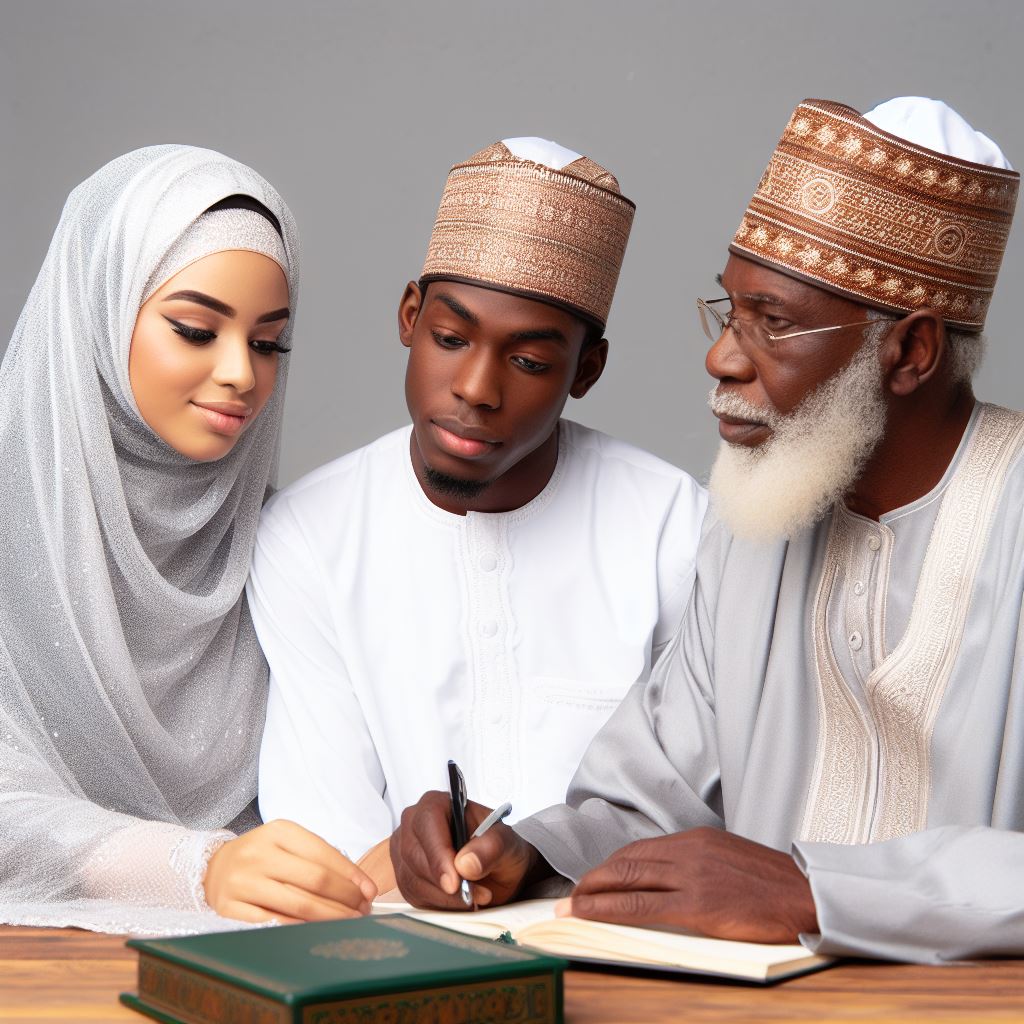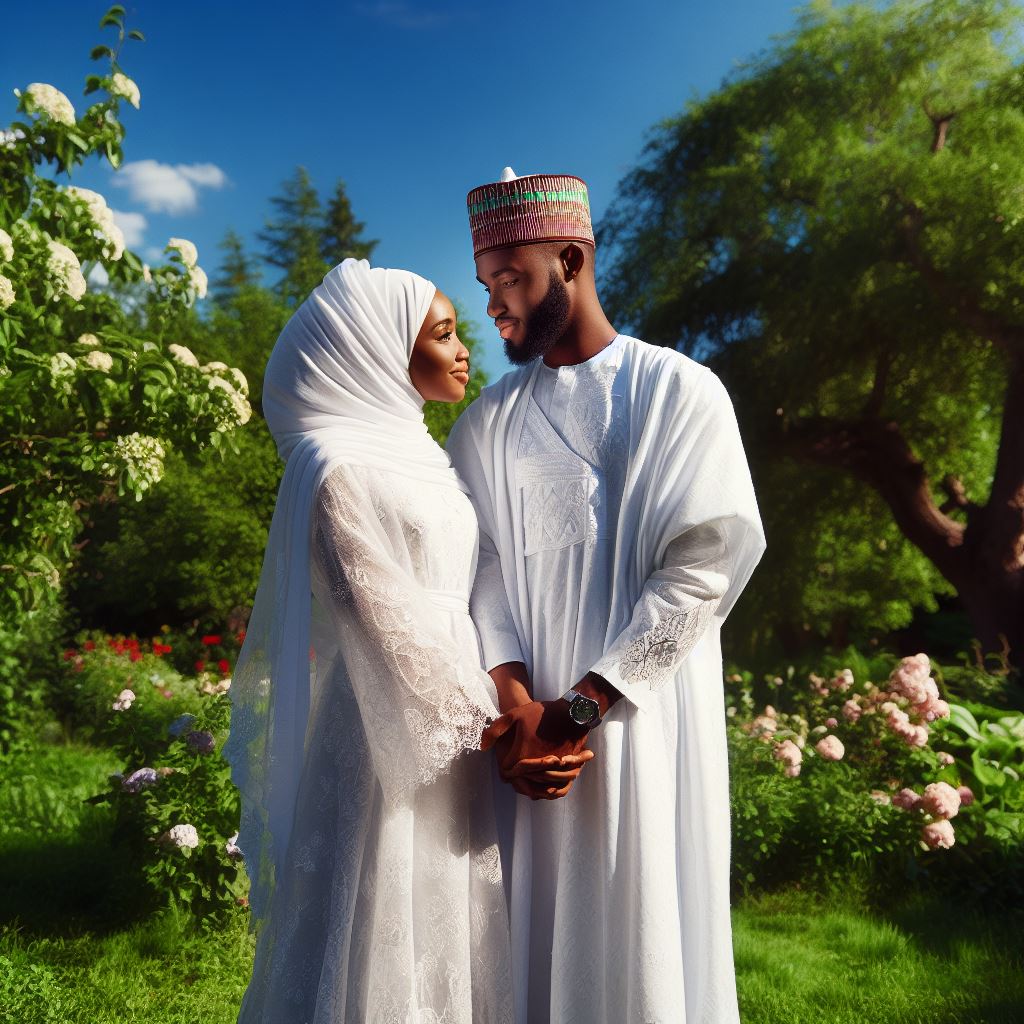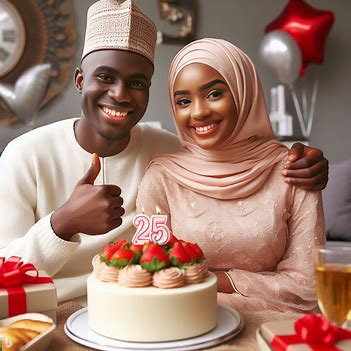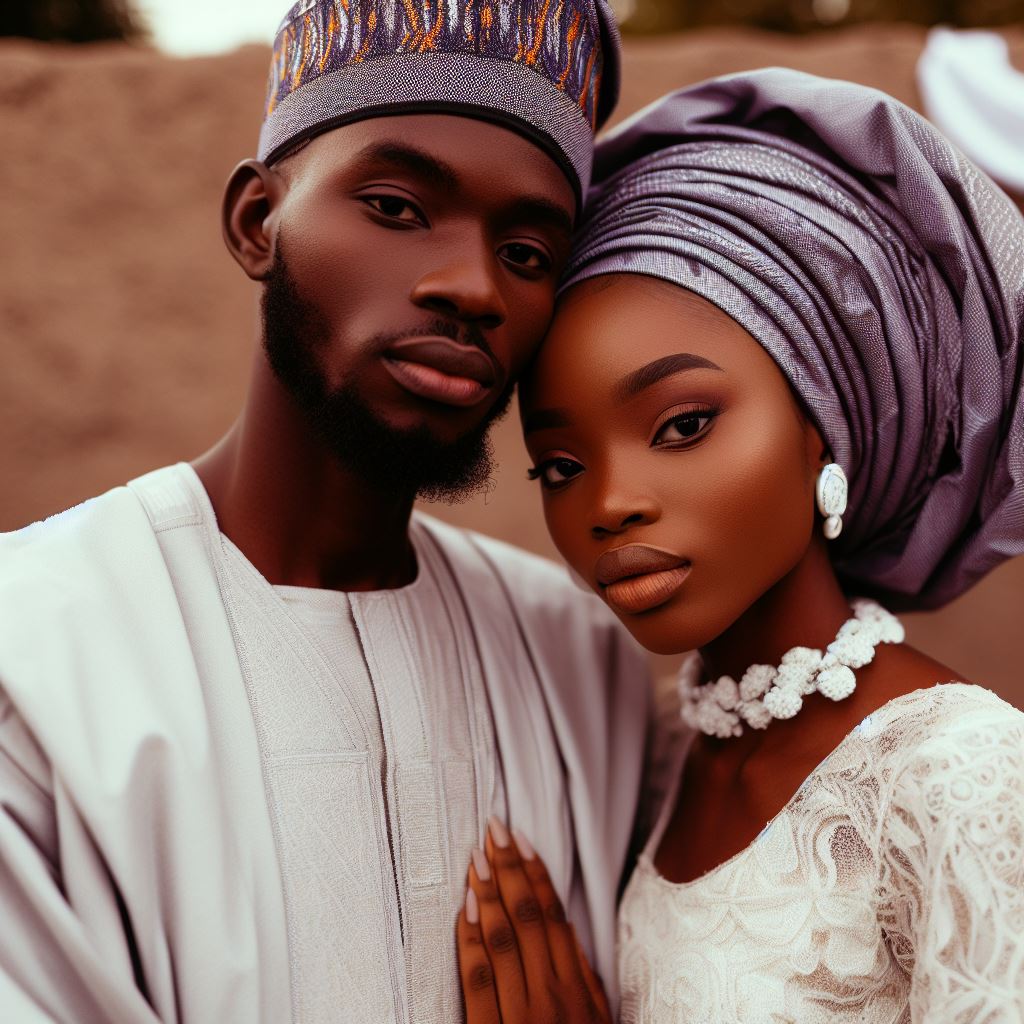Introduction
The Role of Family in Islamic Marriages holds substantial significance within Nigerian culture, as it serves as a cornerstone for societal foundations.
It is a sacred bond that not only unites two individuals but also two families.
In Islamic marriages, the role of family is paramount, as they are extensively involved in the entire process.
The involvement of elders in Islamic marriages is crucial as they bring wisdom, experience, and guidance.
They possess a deep understanding of cultural traditions and Islamic teachings, ensuring that the union aligns with religious principles.
Elders act as mediators and facilitators in the matchmaking process.
They actively participate in the selection of potential partners, considering factors such as compatibility, character, and family background.
Their involvement helps to establish strong foundations for the marital union.
Elders also play a vital role in resolving conflicts that may arise during the marriage.
Their wisdom and impartiality enable them to provide guidance and counsel to the couple, enhancing communication and understanding.
Their presence creates a sense of support and stability within the marriage.
Involving elders in the decision-making process promotes unity and harmony within the family.
It fosters a sense of respect for traditions and cultural values, ensuring that the marriage aligns with the beliefs of the community.
Additionally, their presence provides a sense of accountability, as the couple is held responsible for upholding the values and expectations of their elders.
Basically, the involvement of elders in Islamic marriages holds immense significance.
They serve as a guiding force, ensuring that the union is built on strong foundations and stands the test of time.
Their wisdom and experience help to maintain unity, cultural traditions, and religious values, ultimately strengthening the bond between the couple and their families.
The significance of family in Islamic marriages
The central role of family in Islamic culture
Family holds immense significance in Islamic marriages as it forms the foundation of society.
In Islamic culture, family is considered the cornerstone of social structure and stability.
Family plays a vital role in shaping individuals’ values, morals, and understanding of Islamic principles.
Connection between family and community
Islamic marriages emphasize the strong connection between family and the wider community.
The family is not seen as an isolated unit but as an integral part of the larger Muslim community.
Marriage in Islam is viewed as the union of two families, strengthening the bond between them.
Emphasis on collective decision-making
In Islamic marriages, decisions are not made solely by the couple but involve the entire family.
The elders play a significant role in guiding and advising the couple during the decision-making process.
Collective decision-making ensures that the couple benefits from the wisdom and experience of the elders.
It promotes unity, harmony, and mutual respect within the family and the broader community.
Including the family in decision-making also ensures the preservation of Islamic values and traditions.
Decisions regarding marital compatibility, finances, and major life choices are made collectively.
This collective approach promotes a sense of shared responsibility and accountability within the family.
The involvement of family members fosters a supportive environment for the couple, instilling a sense of security.
Furthermore, involving the family helps to minimize conflict and disputes that may arise in the future.
The elders’ guidance contributes to the success and longevity of the marital union in Islamic culture.
Generally, family plays a central role in Islamic marriages, which is deeply rooted in Islamic culture.
The connection between family and community highlights the importance of a collective approach to decision-making.
By involving the elders and considering their wisdom, the couple benefits from their guidance and support.
This emphasis on family involvement strengthens the bond between families, promotes unity, and preserves Islamic values.
In Islamic marriages, the significance of family is recognized, respected, and celebrated.
Read: Islamic Pre-Marital Courses: Why and Where in Nigeria?
The role of elders in Islamic marriages
Islamic marriages are not just agreements between individuals; they are familial and communal affairs.
Elders, in particular, play a vital role in ensuring the success and happiness of these unions.
Elders as the cultural and spiritual guides
In Islamic cultures, elders are highly respected figures who possess a wealth of knowledge and experience.
They serve as cultural guardians, preserving and passing down traditional values, customs, and religious teachings to future generations.
In the context of marriage, elders provide invaluable guidance in adhering to Islamic principles, such as the importance of mutual respect and understanding between spouses.
They help couples navigate the complexities of married life and instill a sense of spirituality within the relationship.
Providing wisdom, counseling, and guidance
When a couple faces challenges or dilemmas in their marriage, elders offer wisdom and counsel gained from their own experiences.
They have a deep understanding of human nature and can provide insights that younger individuals may not yet possess.
Elders act as mentors, lending a compassionate ear and offering objective advice.
They help couples tackle issues ranging from communication problems to financial matters, fostering emotional and psychological well-being within the marital bond.
Ensuring the compatibility of partners
Compatibility is a crucial aspect of a successful marriage.
Elders actively participate in the matchmaking process, using their knowledge of the families involved to assess compatibility on various levels.
They consider factors such as shared values, interests, and lifestyle choices, as well as family background and social standing.
Elders consult with both parties and their families to ensure a harmonious match that will contribute to a strong and stable union.
Resolving conflicts and mediating disputes
Married life is not immune to conflicts and disputes.
In such situations, elders fulfill a role as mediators, calmly and impartially assisting couples in finding common ground.
With their years of experience, they help resolve conflicts by promoting open communication, compromise, and understanding.
Elders strive to maintain family peace and unity, working towards reconciliation and preserving the sanctity of the marriage.
Essentially, the role of elders in Islamic marriages is multifaceted and essential.
They serve as cultural and spiritual guides, providing wisdom, counseling, and guidance.
They ensure the compatibility of partners and play a crucial role in resolving conflicts and mediating disputes.
By actively involving elders, Islamic marriages can find strength, stability, and long-term success.
Read: Rights of Children in Islamic Matrimony: A Nigerian Lens
The process of involving elders in Islamic marriages
Seeking permission and blessings from parents and guardians
The involvement of elders in Islamic marriages begins with seeking permission and blessings from parents and guardians.
This is an important step that emphasizes the importance of family consent and blessings in the marriage process.
Selection of appropriate elders
Once permission is granted, the next step is to select appropriate elders who will play a role in the marriage process.
These elders are typically individuals who are respected and hold wisdom and experience in matters of marriage and family.
Engaging elders in pre-marital counseling
Engaging elders in pre-marital counseling is crucial to ensure a strong foundation for the marriage.
This counseling provides an opportunity for the couple to seek advice, guidance, and wisdom from experienced elders, which can help them navigate the challenges of married life.
Involving elders in the negotiation of marriage contracts
Another significant aspect of involving elders in Islamic marriages is their role in the negotiation of marriage contracts.
Elders can act as mediators and advisors, helping the couple outline their rights and responsibilities, and ensuring that the contract aligns with the principles of Islam and the needs of both parties.
Read: Challenges of Interfaith Marriages: Islamic Views & Nigeria

Benefits of involving elders in Islamic marriages
Enhanced compatibility and harmony between spouses
- Elders provide wisdom and guidance to help establish a strong foundation in the relationship.
- Their advice helps the couple navigate challenges, leading to better understanding and compromise.
- Elders’ experience offers valuable insight into successful married life, fostering compatibility and harmony.
Reduced chances of divorce and marital problems
- Involving elders allows for discussions on issues before they escalate, reducing conflicts and misunderstandings.
- Elders can mediate disputes and guide the couple towards peaceful resolutions, lowering divorce rates.
- Their wisdom prevents impulsive decisions that often lead to marital problems, promoting longevity in the relationship.
Stronger support system for the couple
- Elders act as a strong support system, readily available to offer advice and lend a listening ear.
- They provide emotional support during difficult times, fostering a sense of security in the marriage.
- Elderly family members can intervene to resolve conflicts or misunderstandings, strengthening the marital bond.
Preservation of cultural values and traditions
- Elders play a crucial role in passing down cultural values and traditions from one generation to another.
- They uphold the religious and cultural heritage, ensuring the couple embraces their shared identity.
- Involving elders empowers them to educate the couple about their cultural practices, promoting cultural preservation.
Enhanced compatibility and harmony between spouses
Involving elders in Islamic marriages brings various benefits that contribute to a successful and fulfilling marital life.
One significant advantage is the enhanced compatibility and harmony between spouses.
Elders provide wisdom and guidance based on their experience, assisting the couple in establishing a strong foundation in their relationship.
Their advice helps navigate challenges, fostering a better understanding and compromise between spouses.
Reduced chances of divorce and marital problems
Furthermore, involving elders reduces the chances of divorce and marital problems.
By allowing discussions and mediating disputes, conflicts and misunderstandings can be resolved before they escalate.
Elders’ wisdom prevents impulsive decisions that often result in marital problems, leading to a lower divorce rate.
Their presence ensures a long-lasting and healthy relationship.
Stronger support system for the couple
In addition to promoting compatibility and reducing divorce rates, involving elders also strengthens the support system for the couple.
Elders act as a reliable source of advice and emotional support, offering guidance during difficult times.
Their intervention in conflicts or misunderstandings helps resolve issues and strengthens the marital bond.
The couple feels a sense of security and comfort knowing that they have a strong support system in their elders.
Preservation of cultural values and traditions
Finally, involving elders in Islamic marriages preserves cultural values and traditions.
Elders play a crucial role in passing down these values from one generation to another, ensuring the couple embraces their shared identity.
They uphold religious and cultural heritage, empowering the couple to appreciate and practice their customs.
By involving elders, cultural preservation is promoted within the Islamic marital context.
In general, involving elders in Islamic marriages brings multiple benefits.
Enhanced compatibility and harmony between spouses, reduced chances of divorce, a stronger support system, and preservation of cultural values are only a few advantages.
Recognizing the wisdom and experience elders possess is vital in establishing a successful and culturally rich marital union.
Read: The Prophetic Tradition: Marriage Lessons from Hadiths
Challenges and Limitations of Involving Elders
Generation Gap and Differing Perspectives
- The generation gap between elders and youngsters can lead to misunderstandings and conflicts.
- With elders holding onto traditional values, younger individuals may struggle to express their personal opinions.
- Differing perspectives on various matters, such as gender roles, can create tension and disagreements.
- It becomes challenging to bridge the gap when elders prioritize following customs over personal choices.
- Elders may feel resistant to change and find it hard to accept new ideas, causing friction within families.
Striking a Balance Between Tradition and Personal Choice
- Involving elders in the marriage process necessitates finding a middle ground between tradition and personal preferences.
- While tradition and cultural values hold significance, it’s essential to respect the individual’s autonomy and freedom of choice.
- Allowing elders to have a say without disregarding the preferences and happiness of the couple is crucial.
- Sometimes, the challenge lies in convincing elders that embracing change can lead to a stronger family unit.
- Striking a balance requires effective communication and understanding between generations.
Addressing Issues of Gender Dynamics and Equality
- Traditional gender dynamics and inequalities can become challenging obstacles when involving elders.
- Elders might adhere to rigid gender roles, limiting the choices and opportunities available to individuals.
- Ensuring the involvement of both genders in decision-making processes may face resistance.
- Elders must be educated about the importance of gender equality in modern relationships.
- Challenging stereotypes and discussing the benefits of an equal partnership can lead to positive change.
Challenges of Involving Elders
The involvement of elders in Islamic marriages undoubtedly comes with its own share of challenges and limitations.
The generation gap and differing perspectives between elders and the younger generation can lead to misunderstandings and conflicts.
Striking a balance between tradition and personal choice is essential, as it allows individuals to respect cultural values while exercising autonomy.
Additionally, addressing issues of gender dynamics and equality is crucial to ensure a fair and equal partnership.
Overcoming these challenges requires open communication, understanding, and education.
Youngsters must find ways to bridge the generation gap by respectfully expressing their opinions while considering the wisdom and experience of their elders.
By engaging in dialogue and demonstrating the benefits of change, elders can gradually embrace modern ideas while still preserving the essence of their traditions.
Involving elders can contribute to the strength and longevity of a marriage.
Their wisdom, guidance, and experience can provide invaluable support to couples.
However, it is necessary to navigate these challenges sensitively, as the ultimate goal is to establish a marriage that honors both tradition and personal choice.
Conclusion
Recap of the role of family in Islamic marriages
In Islamic marriages, the family plays a crucial role in the process of finding suitable partners and ensuring the marriage is viable.
They provide support, guidance, and act as mediators throughout the entire journey.
Recap of the significance of involving elders
Involving elders in Islamic marriages brings wisdom, experience, and a sense of tradition to the union.
Elders contribute to decision-making, provide valuable advice, and help maintain cultural and religious values.
Final thoughts
Family involvement is vital for the long-term success of Islamic marriages.
The support and involvement of family members create a strong foundation, promote understanding, and strengthen the bond between partners.
Marriages that have family involvement tend to have higher levels of marital satisfaction, lower divorce rates, and a better understanding of the cultural and religious aspects that are essential in Islamic marriages.
Therefore, it can be concluded that involving elders and having the active participation of family members significantly contribute to the sustainability and success of Islamic marriages.
As we move forward, it is crucial to recognize and preserve the importance of family in Islamic marriages, as they are the bedrock of a thriving society.




